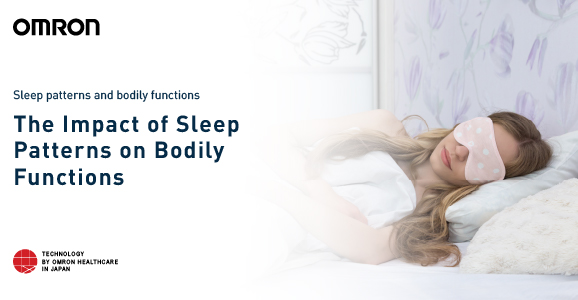The Impact of Sleep Patterns on Bodily Functions
June 17, 2024 2024-09-08 21:30The Impact of Sleep Patterns on Bodily Functions

The Impact of Sleep Patterns on Bodily Functions
Sleep frequently takes a backseat to work, social obligations, and entertainment in our fast-paced society. But almost every element of our health is significantly impacted by our sleep patterns, including the length and quality of our slumber. Here’s a closer look at how sleep affects body processes, from cognitive function to physical well-being, and why maintaining proper sleep hygiene is so important.
Cognitive Function and Memory
A vital element of cognitive wellness is sleep. In slumber, especially in REM (rapid eye movement) sleep, our brain organizes and interprets the data that we have acquired during the day. Learning and memory development depend on this mechanism. Getting enough sleep improves cognitive abilities including focus, problem-solving, and judgment. On the other hand, lack of sleep damages these capacities, resulting in lower output and a higher chance of mistakes.
Emotional Regulation
Have you ever noticed how cranky and irritated you may get after a poor night’s sleep? This is because sleep is essential for controlling emotions. Resilience and emotional stability are enhanced by getting enough sleep. In instance, REM sleep facilitates emotion processing and stress management. Anxiety, stress, and depression risk can all increase with sleep deprivation.
Physical Health
A vital component of physical wellness is sleep. The body goes through several restorative processes as you sleep, including:
- Immune Function: By encouraging the synthesis of cytokines, which are proteins that aid in the fight against infection and inflammation, sleep strengthens the immune system. Lack of sleep for an extended period might impair immunity and increase disease vulnerability.
- Cardiovascular Health: Heart health is supported by regular, sound sleep. An increased risk of hypertension, heart disease, and stroke has been associated with poor sleep habits.
- Metabolism and Weight Management: Hormones that control appetite (ghrelin) and fullness (leptin) are impacted by sleep. Inadequate sleep can cause hormonal imbalances and an increase in the desires for high-calorie meals, which can result in weight gain and obesity.
Endocrine System
Sleep greatly affects the endocrine system, which regulates the creation of hormones. For example, sleep has an impact on growth hormone secretion, which is necessary for tissue development and repair. The stress hormone cortisol is also regulated by sleep. Hormonal imbalances brought on by disturbed sleep patterns might affect blood sugar levels and other aspects of life.
Muscle and Tissue Repair
Slow-wave sleep, sometimes referred to as deep sleep phases, is essential for physical healing. Development hormone, which promotes tissue development and muscle regeneration, is released by the body during these phases. For this reason, getting enough sleep is essential for athletes and physically active people to operate at their peak and recuperate well.
Circadian Rhythms
The circadian rhythm controls our sleep-wake cycle, which determines when we feel awake and when we feel tired. Any interference with this biological clock, whether from shift work, travel, or irregular sleep patterns, can result in sleep problems and have a detrimental effect on general health. By keeping the circadian cycle in sync, a regular sleep schedule improves both the quality of sleep and general health.
Brain Detoxification and Waste Removal
The brain goes through an important detoxifying process while we sleep. Waste products and neurotoxins collect during the day are eliminated by the glymphatic system, which is most active during sleep. The danger of neurodegenerative illnesses like Alzheimer’s is decreased by this mechanism.
Overall Quality of Life
Our general well-being is greatly enhanced by getting good sleep. It boosts physical health, improves everyday functioning, and increases mental clarity. Prioritizing sleep improves our ability to handle life’s obstacles, uphold wholesome relationships, and lead happier, more fulfilling lives.
Conclusion
The effects of sleep are extensive and deep on biological processes. Sleep affects every element of our life, including our physical and mental health, hormone balance and cognitive function. It’s critical to prioritize sleep as we manage our hectic schedules to make sure we receive enough good sleep every night. Not only does this improve our daily functioning, but it also establishes the groundwork for long-term health and wellbeing. The next time you think of sacrificing sleep, keep in mind that getting a decent night’s sleep is essential for living a long, healthy life.






